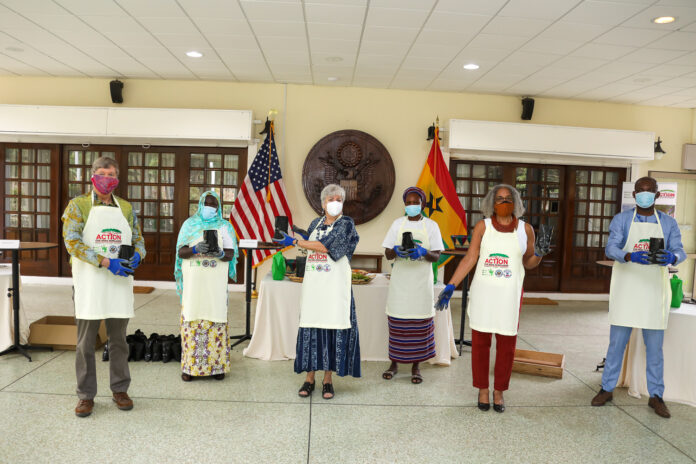
The United States Government, through the U.S. Agency for International Development (USAID), and the Global Shea Alliance (GSA) launched the Action for Shea Parklands (ASP) initiative.
Spearheaded by GSA, this initiative seeks to promote, plant, and protect the shea parklands while advancing a shea industry commitment to plant ten million trees across West Africa over the next ten years.
In Ghana, 20,000 trees will be planted across the five northern regions this year alone.
To commemorate the launch, the U.S. Ambassador to Ghana, Stephanie S. Sullivan joined members of the Global Shea Alliance and women shea cooperative leaders to plant 50 shea seedlings in seedling bags which will be transported to the Northern Region of Ghana for planting during the 2021 shea season.
Ambassador Sullivan said, “Given the impact of the industry on improving incomes for women and their families, I’ve been excited to witness first-hand the enormous growth of the shea export industry in Ghana.
She also acknowledged that “U.S. companies and consumers continue to play a key role in this growth, ensuring that the industry contributes to Ghana’s economic development while meeting the highest social and environmental standards.”
Togo and Benin are also pilot countries for the ASP initiative. In August 2020, 6,000 trees will be planted in northern Togo by 500 rural farmers, including 300 women. The seedlings were acquired from a network of small community nurseries established in 2019.
In Benin, the Fédération Nationale des Productrices d’amandes et de beurre de Karité du Bénin (FNPK), the umbrella of women cooperatives, launched the shea planting campaign as part of ASP in June 2020. The campaign involves 400 women from the northern regions in Benin who planted 2,400 trees in July this year.
The initiative also highlights the importance of bolstering women’s economic development activities in Ghana. Shea is a primary source of livelihood for women living in northern Ghana. In partnership with USAID, GSA is leading the industry’s sustainability effort.
To date, 100,000 seedlings have been raised and 8,000 shea trees planted with private sector funding under the USAID-funded “Sustainable Shea Initiative” (SSI), a public-private partnership with GSA.
The SSI is an $18 million, five-year program that promotes the sustainable expansion of the shea industry in Ghana, Benin, Côte d’Ivoire, Togo, Mali, Nigeria, and Burkina Faso as well as increases the incomes of rural women, who form the backbone of the industry.









